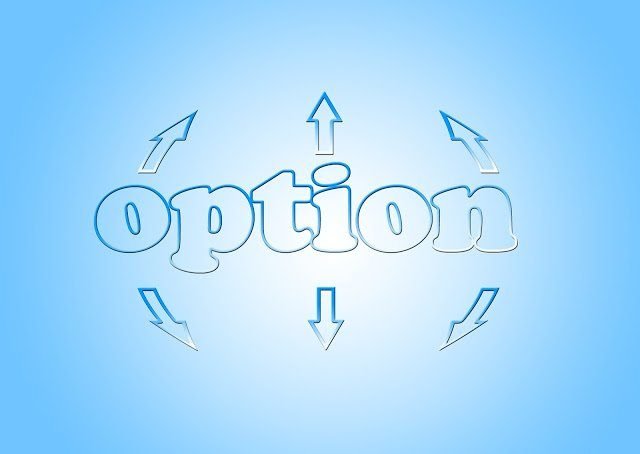Home » Blog » Getting Started Trading »
In this article, I will discuss the possible securities you may consider for trading. After reading my previous posts you should have figured out why you want to get into trading in the first place and you have learned about ways to trade. Now it is time to look into what to trade. All tradeable paper assets have their characteristics and come with their pros and cons.
Table of Contents
Stocks
You probably already know this, but it is good to realize that a Stock is actually a security that makes you own part of the company that issued the stock.
As a stock owner, you are running the risk that if the company goes under the stock value goes to zero and you lose all of your money. In case of bankruptcy, you are last in line to collect. In return, you can get a (limited) say in what goes on in the company by being able to vote at stockholder meetings. And you will share in the possible profits, called dividends.
There are many different kinds of stocks. Most of the differences have to do with legal stuff, like:
- how much influence you can actually have on the company policy as an owner of the stock
- if you are allowed to freely buy or sell the stock
- and how far in line you are in case the company goes belly up.
This is a huge topic in itself. The most important takeaway here is that not all stocks are made equal.
For instance, Alibaba went ‘public’ by issuing stock on the New York Stock Exchange (NYSE) with the ticker symbol BABA. This stock did not give any rights of ownership in the company! You can read more about this here:
- The diplomat: no one who bought Alibaba stock actually owns Alibaba
- Forbes: four reasons to avoid the Alibaba ipo
This does not mean you cannot trade this stock. You just need to know the risk that comes with this kind of stock. So be sure to do your homework.
Pros:
- Typically you own part of a real company that typically has real underlying assets
- Besides possible price gain, you may collect (sometimes high-yielding) profit shares or dividends
- Stocks are traded at regulated exchanges
- Stocks can be volatile, which can give trading opportunities.
Cons:
- Stocks can be volatile, which can result in huge losses (as well as gains) very quickly.
- Stocks can be manipulated
- Compared to other markets the market for a specific stock can be small
- Stock markets can be illiquid, meaning that sometimes there might not be any direct buyers or sellers for the other side of your trade.
- Trading hours of stocks are limited to the exchange trading hours.
Bonds
If you do not want to become an owner or stockholder in a company you can loan out money to many of these companies. Large companies as well as governments issue Bonds in exchange for your money. Bonds basically promise you you will get your money back at a specific date and that you will receive a certain amount of money every year as compensation.
The date is called the expiry. The amount of money paid back is the nominal value of the bond and the compensation is called the coupon rate. The nominal value of the bond is not necessarily the price at which the bond is trading. For example:
Nominal value: 1000 USD
Coupon rate: 3% or 30 USD
Trade price: 900 USD
Effective interest rate: 30 USD / 900 USD = 3.33%
This example hopefully shows you that the price of bonds is affected by interest rates. If interest rates go up, this will have a downward pressure on bond prices as money moves to higher interest-earning securities and vice versa. Another factor that influences bond prices is the likelihood of the company or government not being able to pay back the nominal value the bond was issued at. This risk can be divided into two parts:
- Time
No one can predict the future. So the further out the expiry date/payback date is the more inherent risk. - Solvency
If word gets out that a government or company cannot repay their loans, bond prices of these entities will drop. Bonds that have such a high risk of not being repaid are trading at extremely low prices and are known as junk bonds.
So even though you are not taking on any entrepreneurial risk with Bonds, there are other risks involved that you need to consider and understand.
Pros:
- Bonds are generally speaking less risky than stocks. Especially high-grade government bonds and short-term bonds called bills, like the US Government Treasury Bills known as T-Bills.
- Returns and cash flows are more predictable for bonds than for stocks.
Cons:
- Returns are limited
- Bonds have limited trading hours, usually related to the trading hours of the exchanges where they are traded. Active trading in bonds is mostly done via futures or CFDs on bonds.
Mutual Funds
 |
| Have your money managed by a fund manager by investing in a mutual fund |
A mutual fund is basically stock in a company that owns a portfolio of other securities.
The idea is that you invest your money in a fund and that the fund manager reinvests the money for you. You get a share in the company. In return, you pay a yearly management fee over the funds under management. This is usually about 1 to 2%. Besides this, you may pay entry and exit fees that are usually 0.5%.
This is considered an accessible way of having your money managed by ‘experts’. The ultimate mutual fund is what is called a fund of funds. This is a fund that manages a portfolio of other funds. Mutual fund prices are calculated once per day at the end of the trading day.
Pros:
- It is easy and hands-off
Cons:
- Costs are high
- All prevalent financial research shows fund managers do not outperform the markets by a higher percentage than that can be attributed to chance.
- Funds can only be traded once a day. Which could mean you are rich in the morning and broke by night if anything goes wrong during the day.
ETFs
ETF stands for Exchange Traded Fund. This is not a fund managed by a fund manager, that decides what to put into the portfolio. The portfolio is fixed and automatically balanced to reflect a certain exposure to a region, sector, index, currency, macroeconomic figure, etc..
ETFs are traded throughout the trading day like all other stocks, bonds, etc. There are many different kinds of ETFs. For example, there are leveraged ETFs, that allow for holding a larger position with less capital needed and inverse ETFs, that allow for short selling without having to borrow stocks to sell them, etc..
Pros:
- Cost-effective. The management fees are much lower compared to mutual funds
- Automatically diversifies your portfolio
- Let’s you trade the big picture
- Let’s you trade based on assumptions on regions, sectors or macroeconomics
- Can be traded continuously during trading hours, unlike mutual funds
Cons:
- ETFs can only be traded during exchange trading hours.
Currencies
 |
| The Euro: one of the major currencies in the world behind the US Dollar |
We all know currencies, right? The US Dollar, the Japanese Yen, the Euro, the Great British Pound, etc. If you have ever traveled abroad you may have had to exchange your currency for the currency of the country you are visiting, so you could buy lunch, pay for the hotel room and buy souvenirs.
Companies buying raw materials need to do the same if they have agreed to pay the supplier in a foreign currency. And the other way around: if a company gets paid in a foreign currency, it needs to convert it to its local currency in order to pay employees.
This brings up a natural need for exchanging currencies. The currency market is also called the forex (Foreign Exchange) market.
The Forex market is an Over-The-Counter (OTC) market, which means that there are no official exchanges and basically anyone can buy or sell currencies to make a market. The largest players in this market are banks that trade with each other on the interbank market.
The forex market is also the largest financial market. Currently, the daily turnover in the market is estimated at 4 trillion USD. The forex market is driven by macro-economic data. The most important data is the interest rate decisions made by the central banks.
If you want to trade currencies you will do this through a forex broker. In addition to currencies, you can usually also trade precious metals like Gold and Silver. You can read more about brokers here:
BROKERS
Forex brokers offer you the ability to trade with leverage, which means you do not need a lot of money to hold large positions.
Pros:
- Can be traded 24/5
- You can get started trading with only a small account
- Leverage allows taking advantage of small movements in the price
- Automated margin closeouts by brokers give (some) protection to a negative balance, meaning you cannot lose more money than there is in your account.
Cons:
- Leverage can make you lose your money quickly
- There are many cowboy brokers out there (but also some very good and honest ones)
CFDs
 |
| A CFD is a Contract For Difference |
A CFD is a Contract For Difference. As the name implies it is a contract between you and the issuing party, usually your broker or bank, in which you agree to pay or receive the difference in price of a referenced asset at the time of entry and the time of exit.
This instrument allows for hedging against and speculating on price movements in referenced assets. CFDs are not traded on an exchange. They are traded Over The Counter (OTC). CFDs are mostly offered on referenced assets like commodities (futures), stocks, bonds, and indices. A CFD does not give you any rights to own, buy or sell the referenced asset.
Pros:
- Can be traded 24/5
- You can get started trading with only a small account, yet not as small as with forex
- Leverage allows taking advantage of small movements in the price
Cons:
- Leverage can make you lose your money quickly
- There are many cowboy brokers out there (but also some very good and honest ones)
Futures
A futures contract is a contract that holds the obligation to buy or sell an asset at a future date and price. Futures are traded on a futures exchange. At the expiry date, the contract is settled by physical delivery of the asset or by cash. Futures are also leveraged products and are used for hedging and speculation.
Pros:
- Traded on an exchange
- Leverage allows taking advantage of small movements in the price
Cons:
- Cannot be traded with a small account
- You can easily lose more money than is held in your account. This means you could owe money to your broker in case your trades go bad in a big way.
Options
 |
| Options contracts give you the option to buy or sell |
An options contract is a contract that gives the right or option to buy or sell an asset at a future date (expiry date) and price (strike price). Options are traded on an options exchange. There are two types of options:
- Call options
Gives the holder the right to buy. - Put options
Give the holder the right to sell.
There are two things you can do:
- You can buy a call or put option
- You can write or sell a call or put option
The buyer of the option pays a premium in the price of the option to the writer. There are many ways to trade with options. There are strategies that allow for making money in all kinds of scenarios. Options are often used in conjunction with a portfolio of securities, that is then hedged or optimized using options.
Pros:
- Very versatile, powerful, flexible
- Makes it possible to make money in all markets: up, down, sideways, volatile, non-volatile
Cons:
- You need to learn a lot before you can trade this product.
As I mentioned at the beginning of this article, this is just an introduction. My idea is that you pick one or two types of securities that interest you most. And only when you have fully familiarized yourself with these, move on to learn more about others.





